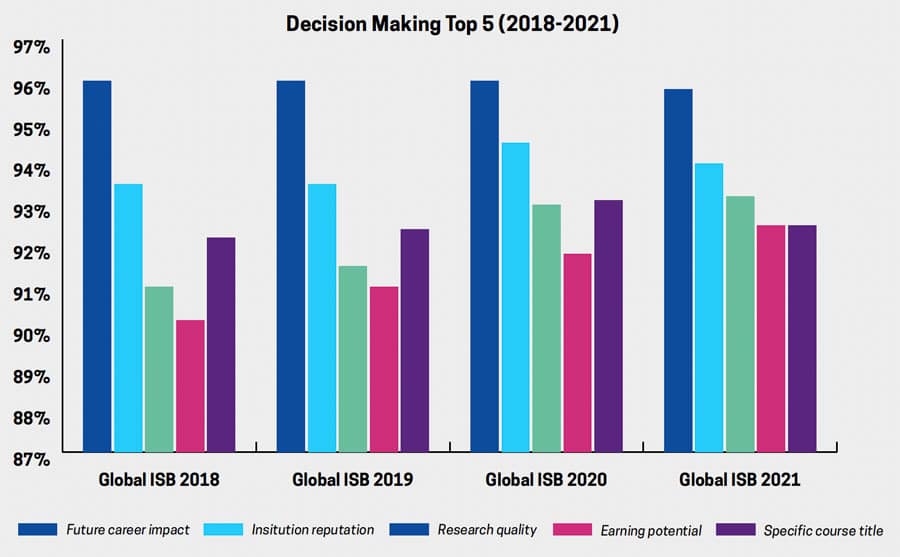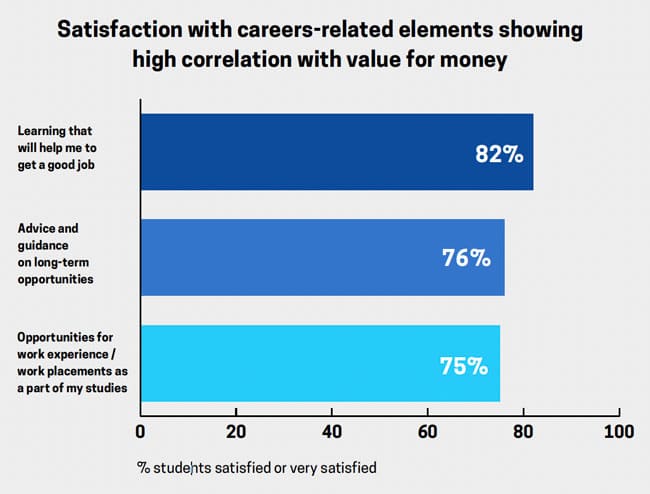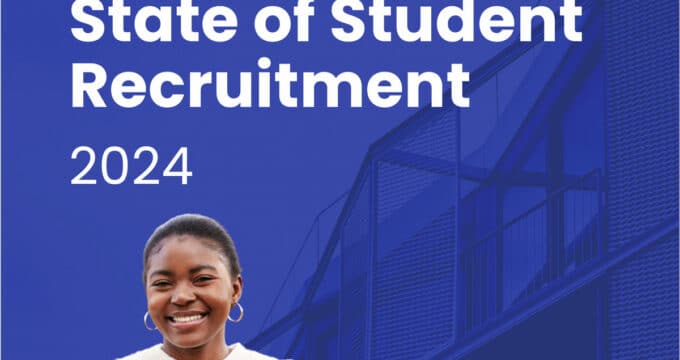Survey says career transition services are a major competitive advantage for educators
- A top finding from the 2022 International Student Barometer (ISB) is that students’ satisfaction with their study experience is strongly correlated to whether they feel ready for their future career
- Many students are not accessing their university’s career services, prompting ISB to suggest that educators might do well to rethink the ways in which they are supporting students in this regard
Results from i-graduate’s 2022 International Student Barometer suggest that institutions that prioritise students’ career goals are more likely to be perceived as delivering value for money. In addition, the study found another strong correlation: students are more likely to recommend an institution when they believe it has prepared them for a good job.
This year’s ISB report is based on feedback from 98,200 foreign students studying in 15 countries: Australia, Canada, China, Finland, Hong Kong, Ireland, Italy, Malaysia, Netherlands, New Zealand, Singapore, Sweden, Thailand, the United Kingdom, and the United States.
This article is Part 1 of our two-part coverage of the 2022 report.
“Future career impact” top factor in study abroad decision-making
Almost all surveyed first-year students – 96% – said that they chose where to study based on the future career impact they believed this choice would have. This proportion has been consistently high over the years. In addition, students’ estimation of what they would earn after graduating has become more important to their study abroad decision-making over the years.

Career services generally not performing optimally
While employability is students' top priority, only 66% of final-year students felt they were well prepared for their career. Nanette Ripmeester, director of i-graduate for North America and Europe, suggests that those institutions that increase student satisfaction on this measure will gain a competitive edge:
“The institution that manages to combine dedication for learning with preparation for the future world of work, is the institution that is able to attract the ‘sustainable generation.’ This generation is highly aware of scarcity in their entire thinking and convinced they have got just one shot at getting it right. And the right career path seems one of these choices they have to get right.”
Only 19% of international students responding to the survey had used their institution’s career services; another 23% agreed with the statement, “it may be useful, but I do not know how to access the service.” Again, Ms Ripmeester offers food for thought:
“As a bare minimum international students should know the service exists and caters for their needs too. My advice to higher education institutions is that those who truly accommodate integration of employability understanding into learning curricula, will most likely be the winners in attracting future talent to their institutions.”
The correlation between employability and likelihood to recommend
Few would argue that crucial indicators of student satisfaction are when a student (1) believes that their degree provides value for money and (2) is willing to recommend their institution to others. ISB data analysts examined the research to see which elements of students’ learning experience correlate most strongly with these indicators. They found that:
- Students feeling prepared for their future career was the top factor determining whether they considered their studies to provide value for money. By contrast, the actual education they received was the 7th most important factor.
- There is also a strong correlation between students’ propensity to recommend their institution to others thinking of studying there and feeling prepared for their careers. Employability was the second most important factor in this correlation, following “course organisation.”

Overall, students are happy but accommodation is an issue
In good news, 89% of international students said they were “happy” or “very happy” with their “life at this institution at this stage of the year, and 86% were “satisfied” or “very satisfied” with their overall learning experience.
However, many students are finding their housing situation to be stressful. More than 8 in 10 (84%) said they had access to suitable housing, but 40% were “dissatisfied” or “very dissatisfied” with the cost of their accommodation – and more than a quarter (28%) said that “cost of living” was a reason they had to leave their host country.
ISB authors conclude:
“Moving forward, institutions could benefit from setting expectations prior to the arrival of international students, communicating information around online learning, contact hours and the cost of living, including the availability of accommodation.”
For additional background, please see:















